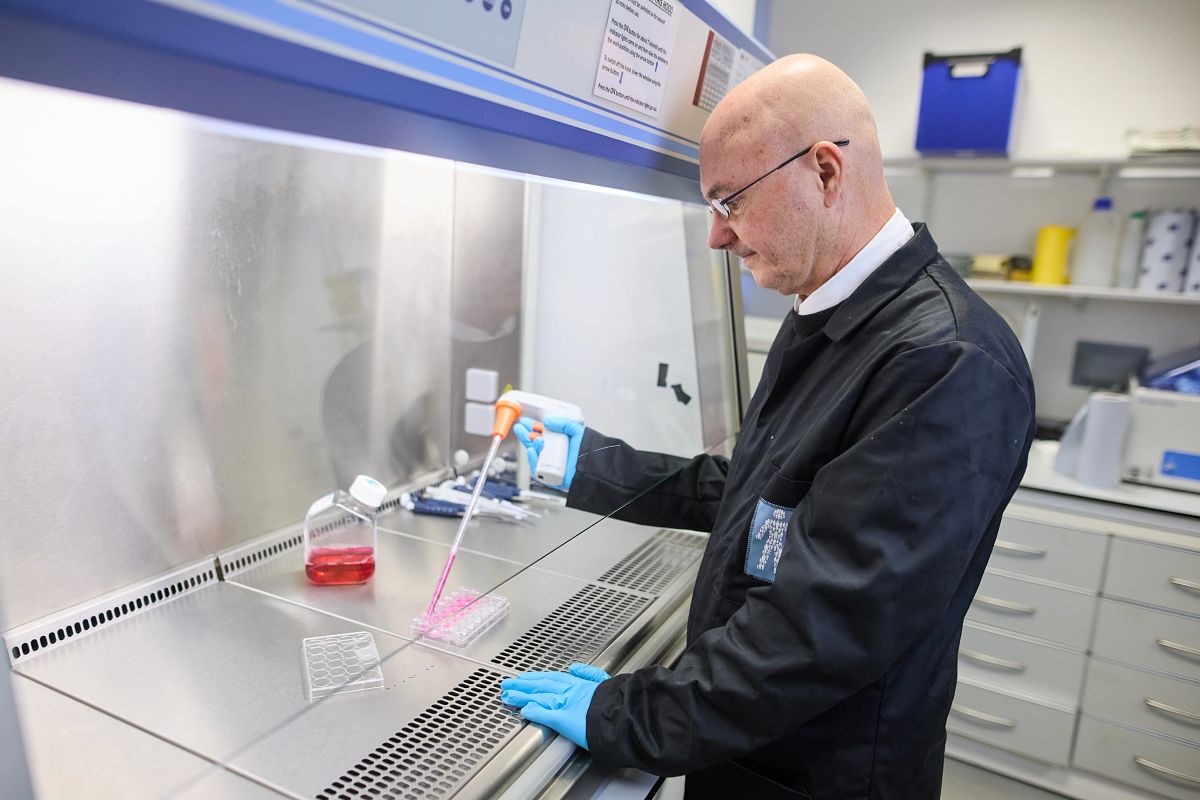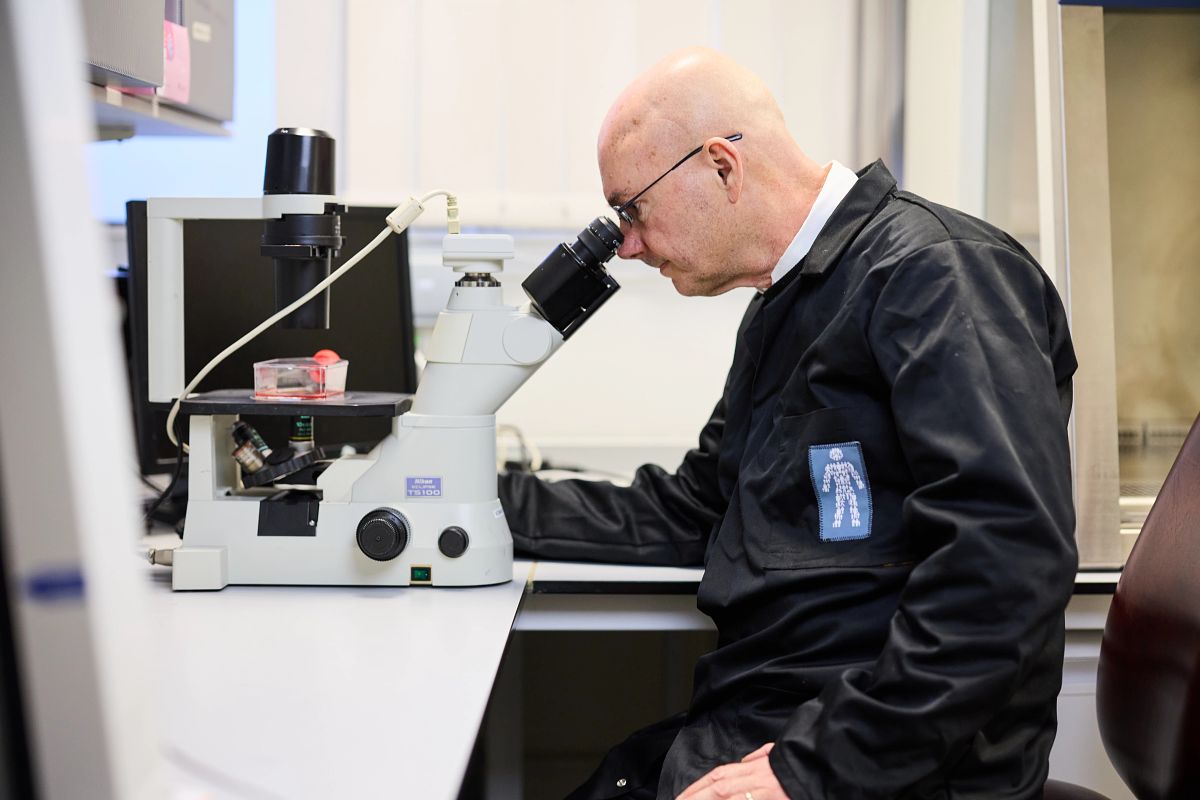Meet our featured researcher

Understanding the mechanisms behind aggressive prostate cancer
Aggressive prostate cancer that has spread beyond the prostate may no longer be curable, leaving men with limited treatment options and less time with their loved ones.
In previous Prostate Cancer UK-funded research, Professor David Elliott and his team at Newcastle University discovered that the expression of two splicing regulator genes, ESRP1 and ESRP2, increased with androgen stimulation and decreased with androgen deprivation therapy.
With further funding from Prostate Cancer UK, Professor Elliott and his colleagues have found that ESRP1 and ESRP2 are overexpressed in aggressive prostate cancer, and that their overexpression correlates with increased activity of genes associated with cell division and proliferation.
Professor Elliott is now using prostate cancer models to investigate how ESRP1/ESRP2 overexpression affects alternative splicing of the genes they regulate, and to identify splice isoforms that correlate with disease progression.

If we can find something in DNA that's driving aggressive disease, it could lead to new treatments that keep it under control.

CRISPR genome editing or antisense oligonucleotides will then be used to confirm which exons within ESPR1/ESPR2-regulated genes are most associated with cancer cell proliferation.
If inhibiting the expression of ESPR1/ESPR2-regulated splice isoforms reduces the ability of cancer cells to proliferate, this could open the door for the development of new drugs to control aggressive prostate cancer.
This approach has already helped researchers find treatments for otherwise untreatable diseases like spinal muscular atrophy.
Hopefully we’ll be able to piggyback onto this technology, which has been developed for other diseases, and apply it to prostate cancer.
Targeting splicing regulation could be a new avenue for the development of treatments that stop aggressive prostate cancer cells proliferating, while leaving the rest of the body unaffected, helping men live longer, healthier lives.
And the results?
We shared Professor Elliott's work with our supporters in a fundraising appeal, along with the story of a man who is currently undergoing chemotherapy for advanced prostate cancer and is determined to seize the 'beautiful opportunity' of each new day.
This appeal has already inspired supporters to donate an incredible £293,030 to support our work.
Professor Elliott and his colleagues also presented their work on splicing and aggressive prostate cancer in a fantastic webinar for our supporters. A link to the recording of the webinar is available in this month's newsletter.
Thank you!
A huge thank you to Professor David Elliott and his team for their cooperation and support throughout the process.

